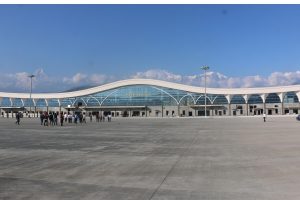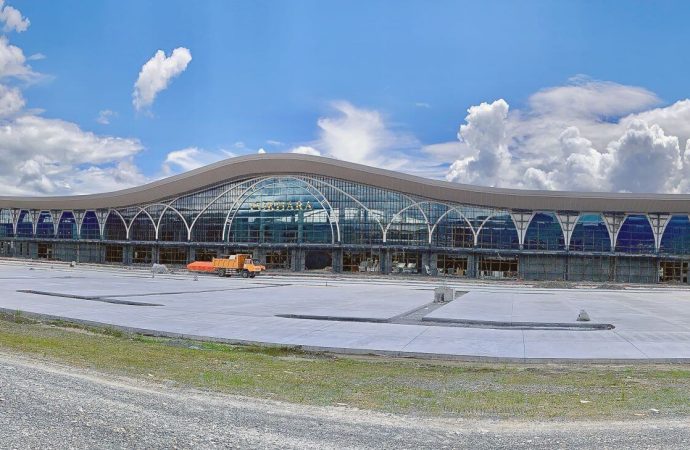Introduction Nepal, a nation known for its awe-inspiring landscapes and diverse culture, is at the crossroads of a significant development. This article delves into the expansive contract between China and Nepal, focusing on the construction of the Gautam Buddha International Airport. The agreement not only highlights Nepal’s ambitions for modern infrastructure but also illustrates China’s
Introduction
Nepal, a nation known for its awe-inspiring landscapes and diverse culture, is at the crossroads of a significant development. This article delves into the expansive contract between China and Nepal, focusing on the construction of the Gautam Buddha International Airport. The agreement not only highlights Nepal’s ambitions for modern infrastructure but also illustrates China’s growing influence in the region.
Nepal’s Ambitious Infrastructure Project
Nepal’s aspirations for the Gautam Buddha International Airport are nothing short of groundbreaking. This transformative project aims to propel Nepal into the ranks of international aviation hubs, enhancing tourism, trade, and connectivity. The extensive contract signed with China covers the construction of state-of-the-art airport facilities, runways, and crucial infrastructure. This venture represents a shift in Nepal’s approach to economic development.
Examining the Fiscal Landscape: Nepal’s Debt Dynamics
Undertaking a project of this magnitude has profound financial implications. Nepal’s national debt has long been a topic of concern for policymakers and citizens. The financial investment required for the Gautam Buddha International Airport could strain Nepal’s fiscal resources, potentially leading to an increase in the national debt. This article dissects the intricacies of Nepal’s financial situation and whether the investment aligns with the country’s long-term economic objectives.

Image by: https://www.nepallivetoday.com/
Unpacking the Contract: A Comparative Table
For a comprehensive overview of the Nepal-China contract and the Gautam Buddha International Airport project, we present a comparative table that succinctly encapsulates the benefits and challenges:
| Aspect | Benefits | Challenges |
|---|---|---|
| Financial Impact | Increased tourism, trade, and employment. | High initial cost and debt implications. |
| Infrastructure Quality | Modern airport facilities and international connectivity. | Ensuring quality construction and management. |
| Geo-Political Relations | Strengthened ties with China. | Balancing relationships with other nations. |
Charting a Path Forward: Managing Geopolitical Complexity
As Nepal takes steps toward its ambitious vision, the geopolitical dynamics take center stage. This section delves into the strategies Nepal can employ to ensure the success of the Gautam Buddha International Airport project while navigating its complex geopolitical relationships. Practical advice for policymakers and stakeholders is offered, serving as a compass to navigate the intricate challenges this significant project presents.
Conclusion: Navigating the Future
In conclusion, the Nepal-China contract for the Gautam Buddha International Airport is a pivotal move for Nepal’s economic development and China’s expanding global influence. While the project holds the promise of enhancing tourism, trade, and connectivity, it simultaneously presents substantial financial challenges. Nepal’s journey to a prosperous future lies in finding a balance between ambition and fiscal prudence. By addressing these challenges adroitly and making informed decisions, Nepal can navigate toward sustainable economic growth and development, securing its citizens’ well-being and the nation’s prosperity.

















Leave a Comment
Your email address will not be published. Required fields are marked with *